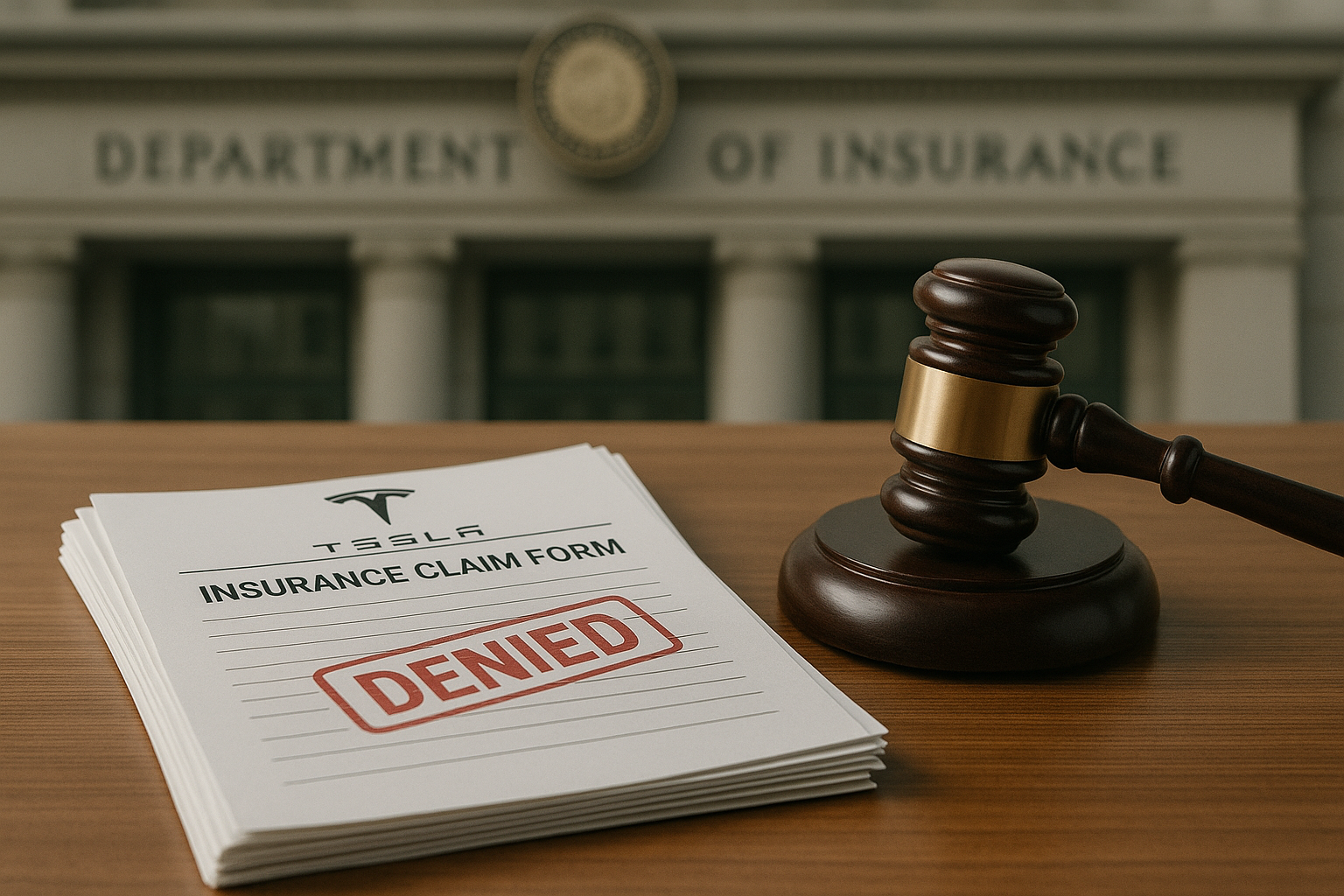Tesla Insurance, Elon Musk's ambitious 2019 venture promising "much lower" rates and a "much better experience" than traditional insurance, has crashed spectacularly into California's regulatory guardrails.
The California Department of Insurance has finally had enough. After what they describe as years of trying to work with the company, regulators have dropped a devastating enforcement action against Tesla's insurance operation, citing nearly 3,000 violations, "egregious delays," and what they're calling "systemic failures" dating back to 2022.
I've covered insurance regulation for years, and let me tell you—this isn't your garden-variety slap on the wrist. This is a full-blown regulatory beatdown.
The allegations? "Willful unfair claims settlement practices" causing both financial harm and emotional distress to policyholders. Yikes.
What's particularly damning here isn't just the violations themselves (though 3,000 is... a lot). It's that California regulators apparently first approached Tesla about these issues three years ago. And things have apparently gotten worse, not better, since then. That's the kind of escalating problem pattern that makes regulators see red.
There's something darkly comical about a company led by tech's most prominent regulatory critic finding itself in hot water for... regulatory violations. The irony isn't lost on industry observers. Or me.
Tesla's insurance troubles follow what you might call a predictable pattern for tech companies entering regulated financial services. They identify inefficiencies in an established industry. They promise revolution through technology. Then they discover regulatory compliance is actually really hard. Before long, corners get cut to maintain growth targets, and—boom—regulatory hammer time.
The timing couldn't be worse for Tesla. With increasing competition squeezing its automotive margins, the company has been pointing to insurance and other service revenue as bright spots for future growth. Instead, the insurance operation is turning into another regulatory headache for a company that seems to collect them like some people collect stamps.
Here's the fundamental problem (and it's a doozy): insurance isn't just another tech product—it's a promise. A promise to be there when things go wrong. When California regulators allege that Tesla "routinely delays and denies legitimate claims," they're saying the company is breaking that basic promise.
Trust me on this—insurance regulation in the U.S. is strict for good reason. When your car gets smashed up, you're vulnerable. You need that claim processed quickly and fairly. If Tesla is systematically failing at this most basic function, it suggests either a fundamental misunderstanding of what insurance actually is or (and this would be more troubling) a deliberate strategy to improve margins by slow-walking claims.
The most alarming part? According to regulators, 2025 has already seen more complaints, more justified complaints, and more violations than the previous three years combined. This problem isn't resolving—it's accelerating.
Look, there's a certain rich irony in a company whose CEO regularly tweets about regulatory overreach finding itself in trouble for allegedly violating regulations designed to protect consumers. The same company promising robotaxis can't figure out how to process an insurance claim in a timely manner? C'mon.
For Tesla shareholders—particularly those who've bought into the "Tesla as a tech ecosystem" vision—this should raise some uncomfortable questions. If the company can't get insurance right (a relatively straightforward financial service compared to, say, banking), what does that suggest about its ability to diversify beyond cars?
I spoke with several former insurance executives (none would go on record due to Tesla's litigious reputation) who expressed skepticism about the company's approach from the beginning. "Insurance is a risk management business, not a tech disruption play," one told me. "The hard part isn't the app or the pricing algorithm—it's delivering when customers need you most."
Will Tesla get its insurance operation back on track? Time will tell. But for now, the company that promised to revolutionize insurance appears to be replicating the worst behaviors of the industry it pledged to disrupt—just with fancier apps and more impatient customers.
As my grandfather (who spent 40 years in insurance) used to say: "In this business, you can have all the fancy offices and clever marketing you want, but if you don't pay claims fairly and promptly, you don't have a business—you have a scheme."
Words to live by, Elon. Words to live by.
